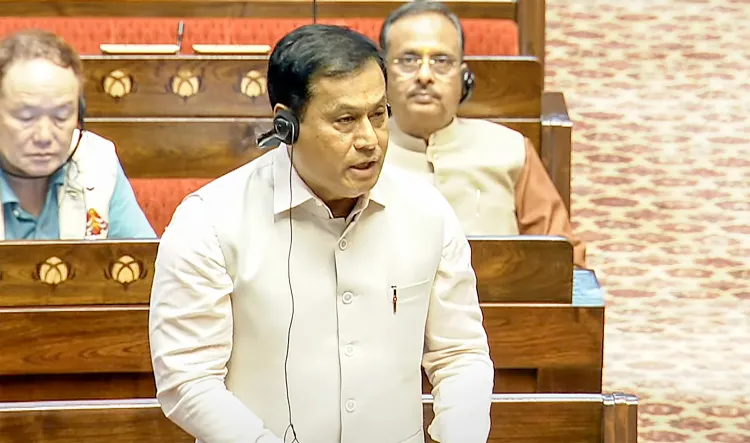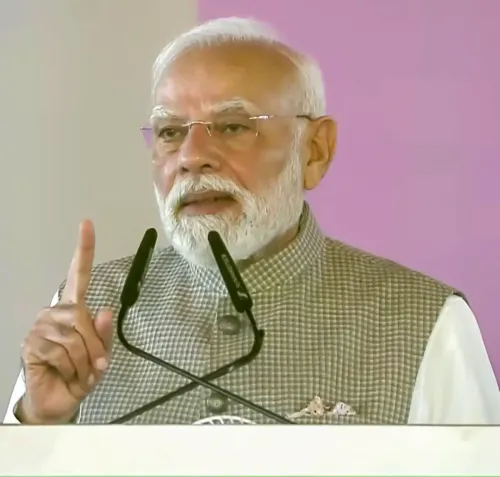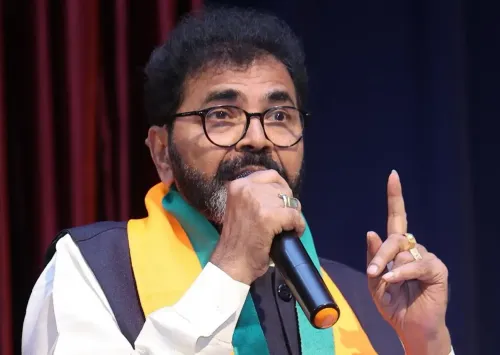Is India Set to Become a Global Maritime Power with Its Shipbuilding Initiatives?

Synopsis
Key Takeaways
- Significant investments are being made in India's shipbuilding sector.
- The Maritime Development Fund aims to mobilize private investments.
- Tax exemptions for raw materials are extended for 10 years.
- Right of First Refusal boosts public procurement for Indian yards.
- Integrated shipbuilding clusters will enhance capabilities and skills.
New Delhi, Aug 2 (NationPress) The shipbuilding sector in India is experiencing a significant transformation as the government, led by Prime Minister Narendra Modi, intensifies efforts to establish a world-class maritime ecosystem, according to Sarbananda Sonowal, Minister of Ports, Shipping and Waterways.
Aligned with the Maritime India Vision 2030 and the strategic roadmap of Amrit Kaal, the Union Budget 2025 has unveiled a series of reforms and investments aimed at greatly enhancing the capacity and competitiveness of Indian shipyards.
“These initiatives are anticipated to fortify India’s standing as an emerging global maritime power,” Sonowal stated during the ongoing monsoon session of the Lok Sabha.
Emphasizing the government's dedication, Sonowal pointed out the revamping of the Shipbuilding Financial Assistance Policy to mitigate cost disadvantages, allowing Indian shipyards to compete on equal terms with international players.
The introduction of credit notes for ship breaking at Indian yards underscores the movement towards a sustainable maritime economy.
To enhance infrastructure financing, large ships exceeding a certain size will now be classified under the Infrastructure Harmonised Master List, making them eligible for long-term, low-interest loans.
At the same time, the government will support the establishment of integrated shipbuilding clusters equipped with cutting-edge infrastructure, skill development centers, and advanced technologies. This, as noted in the Budget, aims to “expand the range, categories, and capacity of ships” built in India.
In a groundbreaking initiative to meet the industry’s demand for long-term capital, the government has proposed a Rs 25,000 crore Maritime Development Fund, with up to 49% government participation. This fund aims to mobilize private and port-led investments to enhance and modernize India's shipbuilding and repair capabilities.
Recognizing the long gestation period of the industry, tax exemptions on Basic Customs Duty (BCD) for raw materials and components used in shipbuilding and ship-breaking have been extended for an additional 10 years.
“Our commitment to empower and enable our maritime sector is unwavering, and we are working under the dynamic leadership of PM Modi to achieve this,” stated Sonowal.
To provide Indian shipbuilders a competitive advantage in public procurement, the government has extended the Right of First Refusal (ROFR) for tenders issued by public sector units. Under the Public Procurement (Preference to Make in India) Order 2017, vessels valued under Rs 200 crore must be sourced from Indian yards, reinforcing the goal of self-reliance in maritime assets.
On the ship repair front, Cochin Shipyard Limited has inaugurated a Rs 970 crore International Ship Repair Facility (ISRF) in Kochi.









